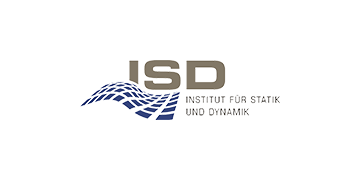| Theme | Artificial Intelligence, Ecology, XXL products |
|---|---|
| Project title | Development of an AI-based geoinformation system for the selection of wind energy potential areas considering the conflict between the protection of species, environment and climate (WindGISKI) |
| Project duration | 01.12.2021 – 30.11.2024 |
| Project website | www.windgiski.uni-hannover.de |
| Download | |
| Press release |
In the joint project WindGISKI, an AI-based geoinformation system for the designation of potential areas for wind turbines is being developed and evaluated. This geoinformation system is intended to systematize and automate the identification and evaluation process of potential areas for onshore wind energy. This should improve the number and quality of potential areas identified in the future.
In the future, the existing potential areas for wind turbines – both greenfield and repowering potentials – can be exploited more extensively and efficiently. The total installed capacity of wind turbines in Germany can be significantly increased.
The Institute of Structural Analysis (ISD) at Leibniz University Hannover is coordinating the joint project. In addition, seven other consortium partners are participating in the research project.
In the run-up to the research project, the consortium partners IPH gGmbH and Nefino GmbH have already carried out a corresponding pilot project.
Publications about the project
Energy transition yes, but a wind turbine nearby? No! The expansion of wind energy is urgently needed, but resistance in the neighborhood and from nature conservation associations delays or stops many construction projects. Using artificial intelligence (AI), the interdisciplinary WindGISKI joint project aims to accelerate the expansion of wind energy. Eight companies, associations and research institutions are developing a geo-information system that will predict the prospects of success for wind energy construction projects.
artificial intelligence, AI, energy transition, wind energy, land evaluation, geoinformation system
Jobs
-
Artificial Intelligence
Bachelor thesis, Project thesis, Internship
-
Artificial Intelligence
Master thesis, Bachelor thesis, Project thesis, Internship
-
Artificial Intelligence
Master thesis, Bachelor thesis, Project thesis, Internship
AI model development and AI explainability in the field of wind power
-
Artificial Intelligence
Student job, Master thesis, Bachelor thesis, Project thesis
Understanding AI models – factors influencing wind power locations
-
Artificial Intelligence
Master thesis, Bachelor thesis, Project thesis
Using AI and ExplainableAI to Identify the Best Wind Energy Sites
-
Artificial Intelligence
Master thesis











